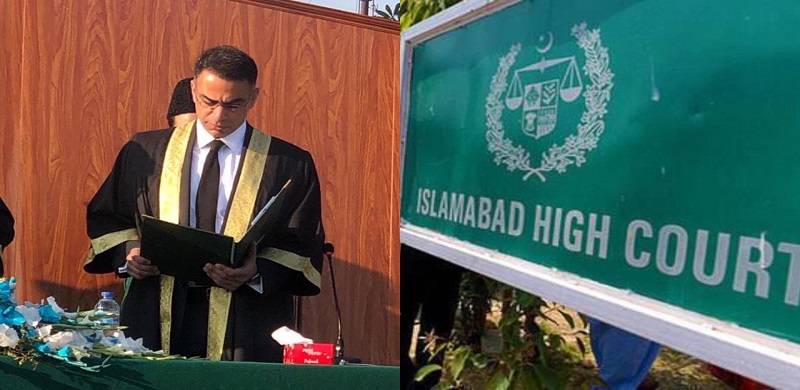IHC Justice Babar Sattar grants one-month extension to federal govt for submission of reply in the audio leaks case
Inquires as to how electronic surveillance was being conducted & asked who was carrying it out
ISLAMABAD ( Web News )
The Islamabad High Court (IHC) granted on Monday a one-month extension to the federal government for submission of reply in the audio leaks case.
A single-member bench of the capital’s high court was hearing a petition filed by Najamus Saqib, the son of former Chief Justice of Pakistan (CJP) Mian Saqib Nisar.
During the proceedings, Justice Babar Sattar inquired as to how electronic surveillance was being conducted and asked who was carrying it out. The Pakistan Telecommunication Authority (PTA) has denied giving anyone such permission, then how were audios of the Prime Minister Office (PMO), a Supreme Court judge and former CJP’s family leaked?
Leaking such audios without taking the state into confidence is a grave decision, remarked the judge, observing that the PMO report states that it does not look into the day-to-day affairs of intelligence agencies.
Justice Babar Sattar asked who was the competent authority regarding audio tapes.
The court summoned the relevant officer of the parliamentary committee and clubbed together the petitions filed by former premier Imran Khan’s wife Bushra Bibi and former PM aide Zulfi Bukhari’s petitions against summons by the Federal Investigation Agency (FIA) in connection with audio leaks.
In a written reply, judicial assistant Senator Mian Raza Rabbani maintained that the court should not look into this matter on its own but send it back to the committee. He added that after the dissolution of the National Assembly all orders issued by committees become ineffective.
Meanwhile, Attorney General for Pakistan (AGP) Barrister Mansoor Usman Awan maintained that no probe has been carried out as yet into the audios in question. It is not clear yet whether these audios were recorded by state agencies, he said, asking the court for time to determine who recorded them.
He said that the government could inform the court during in-camera proceedings about intelligence agencies that have the facility to record such audios. The AGP moved the court to dispose of the petition contending that the petition was in admissable after the parliament was dissolved.
Justice Babar Sattar directed the AGP to speak to the prime minister and the federal cabinet regarding laws about audio taping. It cannot be that conversations are recorded from judge’s chambers or public offices, he remarked.
He added that the court will allow the federal government time to submit its reply but the legal ambits of audio taping must be clarified. Who is recording audios and under what authority, he asked, before adjourning the hearing.

